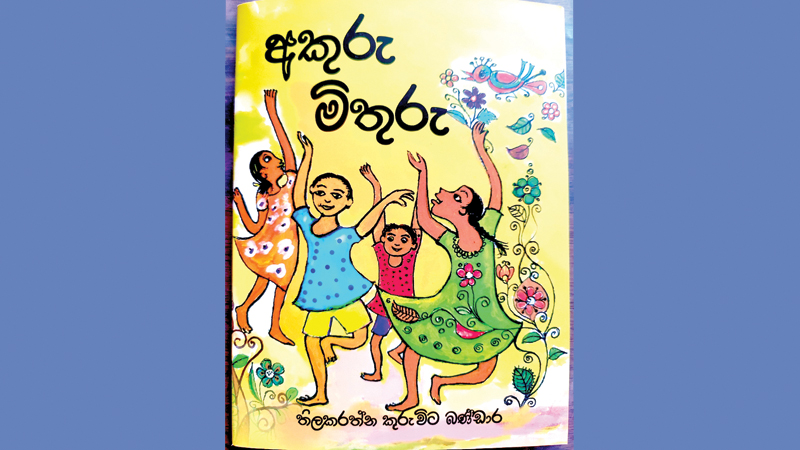Every parent knows that magical moment when their child strings together the letters on a page to form a word. To watch a tiny finger, trace the letters, to hear her stumble over the sounds and then read the word slowly and clearly is akin to watching a door swing open, behind which lies a vast, unexplored world brimming with stories, knowledge and adventures.
One of the most fulfilling responsibilities as a parent is to know, you hold the key to this door and that the journey you are about to embark upon with your child is nothing short of remarkable.
But sometimes, the hardest part is getting your child to read on her own. I remember how my daughter always took the easy way out by demanding a grown up nearby (regardless of who that might be) to read to her. It was only after our Mama cat had a baby that my daughter started to read by herself. Worried the kitten might not fall asleep without a story, she read bedtime stories to Podi in a voice loud enough to be heard three streets away.
But thanks to the beautifully illustrated and well-crafted introduction to the Sinhala alphabet presented by Tilakaratna Kuruvita Bandara in “Akuru Mituru” young parents today need not go through the hassle of making a child take a book into her hands to read her first words all by herself. In fact, I believe you would be hard-pressed to find a child that would not be entertained by the sheer magic on the pages of “Akuru Mituru” filled with Kuruvita Bandara’s clever rhymes.
It is evident that, either through experience or instinct, Kuruvita Bandara knows that a child who is learning to read is learning to connect the sounds that go with letters so that she can then put them together to make words, which then become sentences. Repeating sounds frequently helps a child master this skill. “Akuru Mituru” shows Kuruvita Bandara is the master of repetitive sounds and engaging content while using limited vocabulary suitable for young minds— which no doubt, is an ideal combination for a beginning reader.
The title itself, which rhymes with the childhood game of “Aturu mituru” is a good example of how the author-poet effortlessly introduces a child to the history of calligraphy and the Sinhala alphabet. Though the first five pages emphasising the importance of words and the habit of reading carry a serious message, the clever arrangement of rhyming words reinforces how well Kuruvita Bandara knows the mind of a child. On every page, in every line he seemingly shows, a little fun and excitement is all that is needed to get a child to read.
The fact that the book introduces a young reader to the Sinhala alphabet is in itself commendable. In an age when one’s mother tongue is fast becoming extinct by introducing the Sinhala alphabet to young readers using words that reflect the Sinhala culture Kuruvita Bandara fosters a deeper connection to our roots and heritage. With words such as handahana, yakaduru, tammannava and ankeli he ensures “Akuru Mituru” is a repository of cultural identity, carrying within the pages, traditions and values of past generations. A child who reads the book will be endowed with a sense of pride and belonging, encouraging a deeper connection to one’s roots.
With an enchanting vocabulary, both familiar and unfamiliar, Kuruvita Bandara also teaches young readers an admirable lesson on the importance of reading and writing. He urges everyone to read books written in the past and the present, to gain a rich vocabulary because then, they too can be the authors of useful, intelligent and artistic literary creations.
Perfect for little hands and curious minds, “Akuru Mituru” is the best companion for young readers embarking on a lifelong journey of reading. I think you will be hard pressed to find a child, or an adult for that matter, who will not be fascinated by the sheer magic within the pages of this slim book.
To slightly misquote that other great writer of children’s books, Dr. Seuss, if you have not read this book, you should, because it’s a fun thing to do and fun is good.








